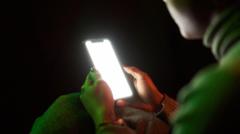Could a Dating Safety App Really Protect You from Stalkers?

The emergence of dating apps has transformed the landscape of modern relationships, providing new avenues for connection while also introducing significant risks. The recent data breach of the Tea Dating Advice app has highlighted the precarious balance between safety and privacy in online dating, particularly for women. This incident has ignited discussions around the implications of sharing personal information in the pursuit of romantic relationships.
Last updated: 17 October 2023 (BST)
Key Takeaways
- The Tea Dating app allowed women to share their dating experiences and perform background checks on potential partners.
- In July 2023, over 70,000 user images and personal data were leaked, leading to harassment and doxxing.
- Legal actions have been initiated against the app’s parent company, highlighting issues of privacy and safety.
- The incident has prompted significant discussion on the safety of women in online dating environments.
- Experts warn that misogyny in dating culture is becoming increasingly entrenched.
The Rise of Safety-Oriented Dating Apps
Dating apps have revolutionised how people meet and interact. One of the latest innovations in this field is the Tea Dating Advice app, which was launched in 2023. Designed to empower women, the app allows users to perform background checks on potential partners, flagging individuals who may pose a risk due to past behaviours or relationships.
Despite its intentions, the app has been mired in controversy, particularly following the data breach in July 2023. Users, primarily women, sought a platform that could offer them security and peace of mind in a landscape often fraught with threats. The app’s features, which included reporting married individuals or registered sex offenders, were aimed at providing a safer dating experience.
The Data Breach: An Overview
The breach of the Tea app represented a significant failure in data protection. In late July 2023, hackers leaked over 70,000 images and personal data, including IDs and selfies that users had submitted for verification. This information found its way onto the online message board 4chan, where it was exploited by misogynist groups to harass and humiliate the women involved.
The existence of two maps on social media, pinpointing the locations of women who had registered on Tea, further exacerbated fears for personal safety. The maps displayed over 33,000 locations across the United States, raising alarms among users like Sally, who found her exact address on one of the maps.
Legal Repercussions and User Responses
In the aftermath of the breach, more than ten women filed class-action lawsuits against the parent company of the Tea app. They claimed that the company's negligence led to emotional distress and harassment following the leak of their personal information. The spokesperson for the app acknowledged the breach and stated that they were working to notify affected users while offering identity theft and credit monitoring services.
This incident has also led to the proliferation of copycat applications and websites that further exploit the leaked data. Many of these platforms encourage the sharing of negative reviews about women, contributing to a toxic environment where users feel emboldened to act without consequence.
Public and Expert Opinions
The fallout from the Tea app leak has sparked considerable debate about the implications of dating apps for women. Experts like Dr Jenny Van Hooff from Manchester Metropolitan University argue that the culture of misogyny in dating is exacerbated by the anonymity and lack of accountability present in online interactions.
Dr Van Hooff notes that negative experiences reported by women are common, with a 2023 Pew Research study indicating that over half of women's experiences on dating apps have been negative. This statistic underscores the urgent need for safer platforms and practices in online dating.
The Broader Context of Online Dating
The Tea app breach is not an isolated incident but rather part of a larger trend in how women interact with technology and dating. Previous iterations of safety-focused apps, such as 'Are We Dating the Same Guy', have faced similar criticisms. These platforms began as mechanisms for accountability but soon became controversial, with many men feeling misrepresented.
The Tea app, however, took this concept to an unprecedented scale, attracting over a million users in a short time. While these platforms aim to provide safety, they also risk becoming breeding grounds for misinformation and harassment.
Impacts on Users: A Personal Perspective
For individuals like Sally, the implications of the data breach have been profound. She has expressed feeling unsafe and has chosen to move in with loved ones to regain a sense of security. Her experience serves as a stark reminder of the real-world consequences of online data breaches, particularly for vulnerable populations.
As the situation develops, it is clear that the need for robust security measures in dating apps is more pressing than ever. This incident serves as a wake-up call, prompting discussions about how dating apps can evolve to offer genuine safety without compromising user privacy.
Future Considerations for Dating Apps
The leak of the Tea app's data highlights several critical considerations for the future of dating applications. As the landscape evolves, developers must prioritise user safety and privacy. Key measures could include:
- Enhanced Security Protocols: Implementing stronger encryption and data protection measures to safeguard user information.
- User Education: Informing users about the risks associated with sharing personal information and how to protect themselves.
- Verification Processes: Establishing reliable systems to verify users' identities while maintaining privacy.
- Regular Audits: Conducting frequent security audits to identify and rectify vulnerabilities in the app's infrastructure.
FAQs
What is the Tea Dating Advice app?
The Tea Dating Advice app is a platform designed for women to share their dating experiences and perform background checks on potential partners. It allows users to flag concerning behaviours and identities.
What happened during the Tea app data breach?
In July 2023, over 70,000 images and personal information from the Tea app were leaked, leading to harassment and doxxing of users, primarily women.
What legal actions have been taken against the Tea app?
Following the data breach, more than ten women filed class-action lawsuits against the parent company of the Tea app, citing emotional distress and negligence.
How can women protect themselves when using dating apps?
Women can protect themselves by using apps with strong security measures, being cautious about sharing personal information, and relying on verified profiles to assess potential partners.
What are the implications of the Tea app leak for online dating?
The leak has raised significant concerns about user safety and privacy in online dating, highlighting the need for improved security measures and accountability in dating apps.
The Tea Dating Advice app incident underscores the complexities of navigating modern dating while ensuring safety and privacy. As technology continues to evolve, so must the strategies to protect users in an increasingly digital world. How can we ensure that the pursuit of connection does not come at the cost of safety? #OnlineDating #DataPrivacy #WomenSafety
Published: 2025-08-23 00:42:37 | Category: technology



